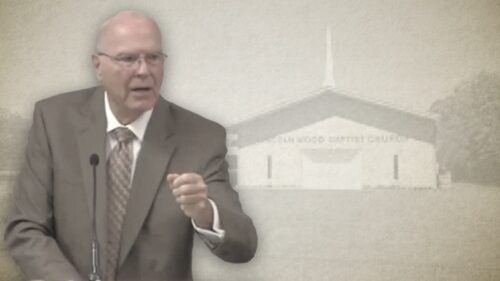-
AHB Worship Services, Jared Smith's Online Worship Services, Jared Smith's Sermons, Jared Smith's Studies In Genesis
The Generations Of The Human Race
"These are the generations of...". Eleven times this expression occurs in the book of Genesis, indicating its main structure and focal point. When reading through the book, attention should be given to the men and women whose lives and testimonies are recorded for our learning, that through patience and comfort of the Scriptures we might have hope.
-
39 Bible Doctrine – The Key To Unlocking John Gill’s ‘Body Of Divinity’
I would like to welcome you back to another study in Bible Doctrine. In our previous studies, I have introduced the life, legacy and writings of John Gill. Out of the twenty-five works highlighted, there are four which I have recommended every Christian should own and read: 1. “The Cause of God and Truth” (1735-38) 2. “An Exposition of the Old and New Testaments” (1746-48; 1763-66) 3. “Goat Yard Declaration of Faith” (1729) 4. “A Body of Doctrinal and Practical Divinity” (1769-70) Having given some background, explanations and samples of the first three works, I now come to the last—A Body of Doctrinal and Practical Divinity. Another term for ‘body’ is system, and another term for ‘divinity’ is theology. Henceforth, this is John Gill’s System…
-
The Key To Unlocking John Gill’s “Body Of Doctrinal And Practical Divinity”
John Gill understood the Sublapsarian view on the logical order of God's decree to fit within the Supralapsarian view, thereby subscribing to both positions. This scheme of teaching is diagramed in the "Framework of Sovereign Grace", which serves as the key to unlocking Gill's "Body of Doctrinal and Practical Divinity" (Systematic Theology). Although Gill himself never diagramed his framework of teachings, it was a method used by William Perkins (a Supralapsarian) and by John Bunyan (a Sublapsarian) during the 16th and 17th centuries. The "Framework of Sovereign Grace" is a diagram drawn up by Jared Smith in 2012, incidentally but conveniently aligned with the teachings of John Gill.
-
AHB Worship Services, Jared Smith's Online Worship Services, Jared Smith's Sermons, Jared Smith's Studies In Genesis
Dispensations Of God’s Grace
The masterplan of God for the ages may be reduced to the administration of His grace towards the members of the human race. There is a common grace unto creation which extends to all people (elect and non-elect). There is also a special grace unto salvation which extends only to the elect. Henceforth, every person is a dispensation of God's grace, either under the authority of the covenant of works, and therefore the recipient of God's common grace unto creation, or under the authority of the covenant of grace, and therefore the recipient of God's special grace unto salvation. These spiritual and perpetual covenants must be distinguished from the earthly and temporary covenants, such as that which God made with Noah, Abraham, Moses and David.…
-
38 Bible Doctrine – Confessional Statements And Their Proper Use
I would like to welcome you back to another study in Bible Doctrine. In our previous two studies, I have given a historic and doctrinal overview of John Gill’s Goat Yard Declaration of Faith. And then, towards the end of our last study, I pointed out some of the major differences between the 1689 Confession and the 1729 Declaration. In a nutshell, the 1689 Confession is representative of 17th century Hyper-Calvinism, whereas the 1729 Declaration is representative of 18th century Hyper-Calvinism. More specifically, 17th century Hyper-Calvinism, represented by the 1689 Confession, is based on a threefold covenantal framework, pushing to the forefront a conditional covenant of grace. Forthwith, saving faith is viewed as a legal duty imposed upon unregenerate sinners, resulting in a conditional salvation;…
-
Confessional Statements And Their Proper Use
Confessional Statements have become increasingly more popular since the rise of the Reformed Baptist Movement. So much so, that many anoint the 1689 Second London Baptist Confession Of Faith with sacerdotal unction. Few believers are aware of the differences between the 17th century Particular Baptist confessions and the 18th Century Particular Baptist confessions. In this study, a comparison is made between the 1689 Confession and the 1729 Declaration (John Gill's Goat Yard Confession). Guidance is given also on the proper use of confessional statements in general.





